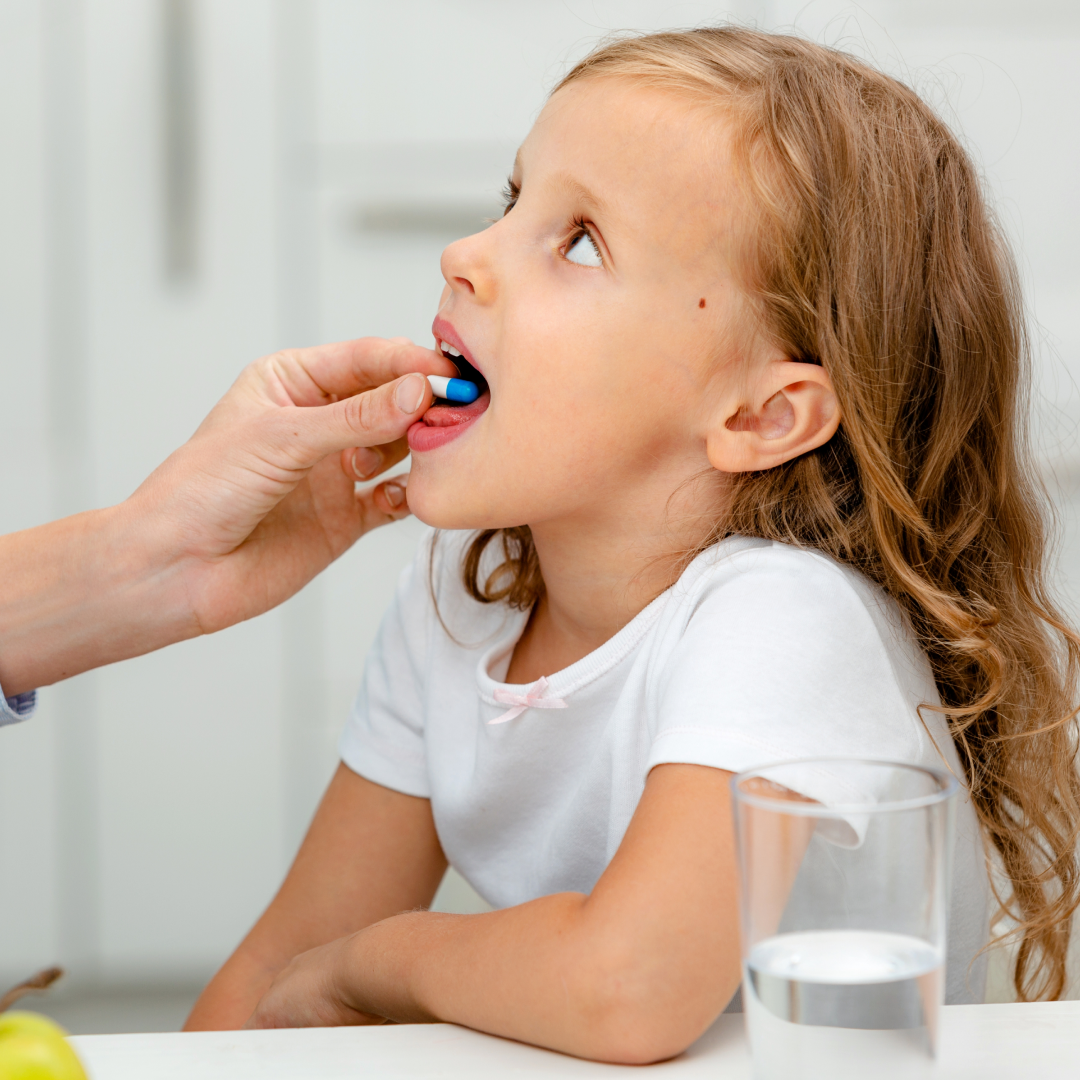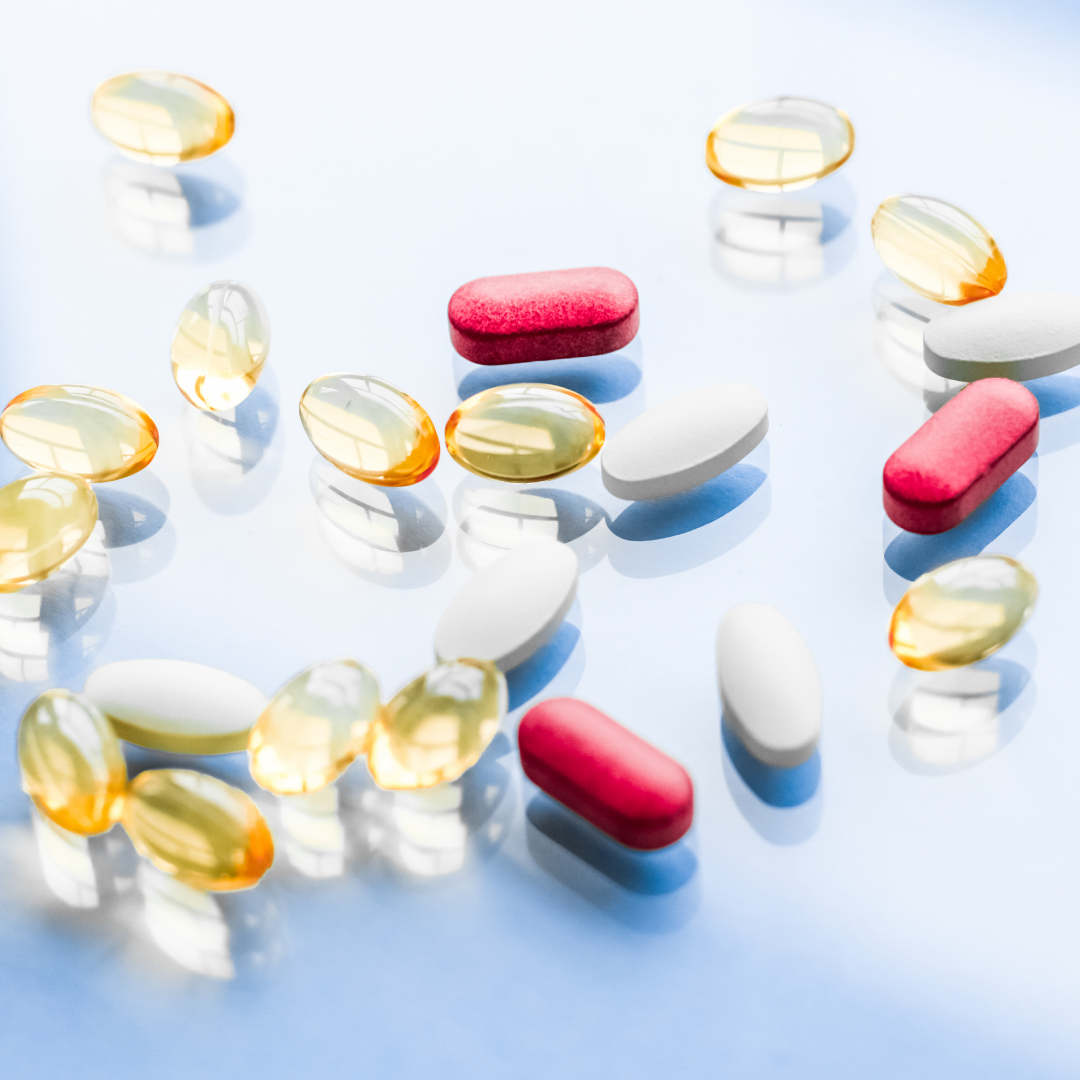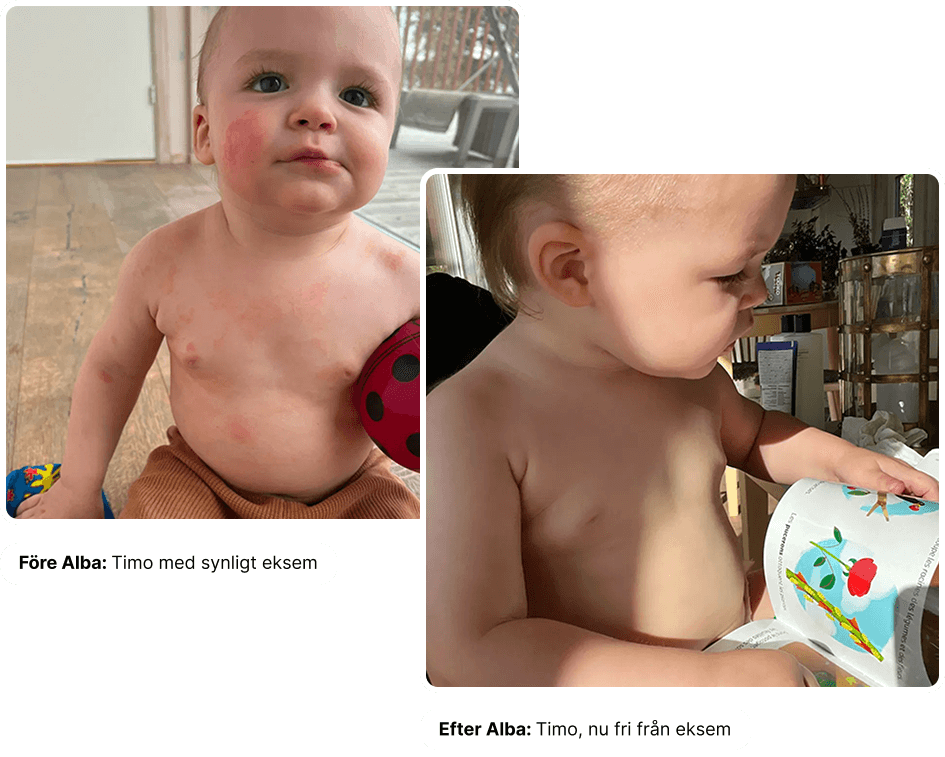
How antibiotics affect your child's health
When your child needs antibiotics, it’s hard not to worry. The medicine fights the infection, but what about all the good bacteria in their gut? As a parent, you want to know the best way to take care of your child both during and after the treatment.
Learn more


Antibiotics and the delicate gut microbiome
Antibiotics can be life-saving, but they don’t just target harmful bacteria – they also affect the beneficial bacteria in the gut. This can lead to both short- and long-term effects on your child’s health.
Since many children take antibiotics at some point in their early years, it’s important to know how to support their gut health during recovery.
Long-term effects:
- Increased risk of asthma and allergies
- Higher likelihood of obesity
- Greater risk of inflammatory diseases
Short-term effects:
- Imbalance in gut bacteria
- Reduced levels of beneficial bacteria
- Slower weight gain
Helping the gut microbiome heal
After a round of antibiotics, the gut may need extra support to regain its balance.
Probiotics
Probiotics provide beneficial bacteria that may help restore the microbiome, especially after antibiotics or early-life disruptions like C-section birth. Choosing the right strain and format matters – guidance from a gut health test can help.
Prebiotics
Prebiotics act as food for good bacteria. In infants, HMOs from breast milk play this role naturally. For formula-fed babies, children, and teens, targeted prebiotics can help support a healthy gut environment.
Food first
A varied, fiber-rich diet helps feed beneficial gut bacteria. Foods like fruits, vegetables, whole grains, and fermented foods can support balance and resilience over time.
How do you know If the gut microbiome has recovered?
Every child is different, and you can’t always see the effects of antibiotics on the outside. However, there are ways to check how their gut bacteria are doing and what you can do to help.
Alba's at-home gut health tests can provide a complete report on your child’s microbiome. Based on the results, you’ll receive a personalized action plan and a consultation with a certified nutrition coach, giving you the chance to ask questions and get tailored advice.

Developed by scientists from Karolinska, KTH and Uppsala University
Developed by leading researchers
Alba’s gut health test has helped many parents support their children after antibiotics. Developed by leading researchers, this safe and easy at-home test gives you a clear picture of your child’s gut bacteria – and practical steps to improve it.

FROM A PARENT

“He got sick and had to take antibiotics, and right after he had a big eczema flare. After Alba, his eczema has completely cleared."
"My son was suffering from mild eczema that kept re-appearing all over his torso, back and legs. When he was 1.5 years old he got sick and had to take antibiotics, and right after he had a big eczema flare.
That's when I found Alba. The great thing about Alba is that it’s based on science. You’re not guessing or relying on generic advice. The insights are personal, and the steps are easy to follow.
We started diversifying Timo’s meals more and added yogurt, berries, and fermented foods. Within a few weeks, his eczema disappeared. Eight months later, it still hasn’t come back.”
- Noemie, Timo’s mamma
FAQ
In children, it depends on the age. The baby's microbiome is constantly evolving from birth to adulthood, so monitoring its trajectory and development over time is even more informative than looking at only one snapshot.
From one microbiome test, you will discover:
- Levels of friendly bacteria, promoting healthy development
- Levels of unfriendly bacteria, as some types of bacteria are known to be unfriendly when in large share, being able to cause infections and inhibit friendly bacteria
- Gut microbiome diversity, which is associated to health and wellbeing
- Associations with constipation, from our clinical study in Sweden
- Levels of bacteria promoting immune system development and associated to lower risk of allergy and eczema
- Levels of bacteria promoting metabolic health and associated to healthy weight
- Levels of bacteria promoting brain health and cognition
- Most importantly, you will receive a set of personalized recommendations covering diet, environmental exposure, behavior and probiotic supplements (if needed) reviewed by our medical experts and discussed with you in a 1:1 consultation with a certified Nutrition & Health Coach. You will also receive 3 simple example recipes that promote optimal gut health.
References: Stewart CJ, Ajami NJ, O'Brien JL, Hutchinson DS, Smith DP, Wong MC, Ross MC, Lloyd RE, Doddapaneni H, Metcalf GA, Muzny D, Gibbs RA, Vatanen T, Huttenhower C, Xavier RJ, Rewers M, Hagopian W, Toppari J, Ziegler AG, She JX, Akolkar B, Lernmark A, Hyoty H, Vehik K, Krischer JP, Petrosino JF. Temporal development of the gut microbiome in early childhood from the TEDDY study. Nature (2018);
We are inhabited by 39 trillions of microorganisms that live on our skin, mouth, genitals, respiratory tract and gut. They are bacteria, fungi, viruses and parasites and they are essential for our health - in fact, we couldn’t survive without them! The gut microbiome is the collection of all of our microbes in the gut, and their DNA. It has a fundamental role in digestion, immune system health and brain health. Imbalances in the gut microbiome have been associated with most chronic diseases like obesity, diabetes, asthma, celiac disease and even cancer.
References: Ghosh, T.S., Shanahan, F. & O’Toole, P.W. The gut microbiome as a modulator of healthy ageing. Nat Rev Gastroenterol Hepatol (2022); Vijay, A., Valdes, A.M. Role of the gut microbiome in chronic diseases: a narrative review. Eur J Clin Nutr 76, 489–501 (2022).
From a stool sample, we are able to collect the DNA of all gut microbes. From their DNA we can tell exactly which bacteria are present and what they are doing in your gut. We analyze bacterial DNA only, and we do not analyze your own DNA.
Buy the test

